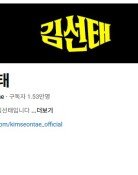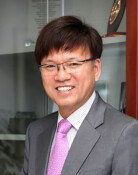[Opinion] Shaping Up National Language
[Opinion] Shaping Up National Language
Posted July. 20, 2004 22:21,
Im Ggeok-jeong, the fiction written by Hong Myong-hee and also known as one of the Three Geniuses under Japanese colonial rule, is the treasure box of the Korean language. Literary critic Lee Hyo-seok praises it as a sea of Korean vocabulary. Novelist Han Seol-ya goes further in saying, It would be better to read Im Ggeok-jeong once rather than a thousand linguistics books. Lately, novelist Kim Joo-young and the late Lee Moon-goo have had a great command of Korean vocabulary. The joy of reading their works by looking into a Korean dictionary is incomparable to that of reading an English book with an English dictionary.
A campaign to shape up the Korean language, waged jointly by Dong-A Ilbo, Donga.com, the National Academy of the Korean Language, and KT Cultural Foundations, is being received well by the public. Replacing words of foreign origin with pure Korean ones is the goal of the campaign as the English word, reply, is replaced with the Korean words daetgeul, dapgeul, and deotgeul. One can suggest a replacement at the campaigns Web site at www.malteo.net or Donga.com at www.donga.com. The national academy will select the winners.
When the campaign invited the public to find a word to replace well-being as its first activity, 104 replacements were suggested. The academy short-listed chamsalyi (real life), teunsil (strong and sound), jalsalyi (living well), haengbok chatki (happiness search), and geumbit (golden color) and put them to an online vote. Chamsalyi came in first with 47 percent of the votes. The next word the campaign wanted to replace was screen door which received about 300 suggestions, including salpimoon, chadanmoon, anjeonmoon, and anjeonwook. The winner will receive a great reward. His or her suggested word may find its way into the Korean lexicon if it is widely used.
The Oxford English Dictionary, the worlds authority of the English language, contains 12 Korean words such as sijo, yangban, Hangeul, kimchi, taekwondo, ondol and makgeoli. Its latest edition, which includes 350,000 words, has about 2,000 new entries that have come into use since the 1970s: damagochi, millennium bug, and mouse potato. Will it be his or her familys honor if his or her invention replaces a foreign word that is listed in internationally renowned dictionaries?
Oh Myung-cheol, Editorial writer oscar@donga.com







